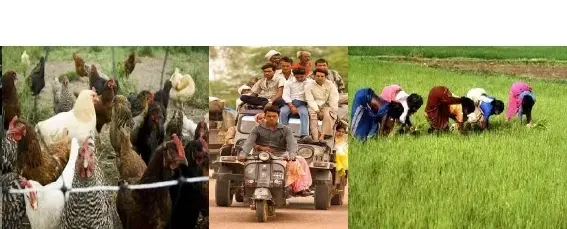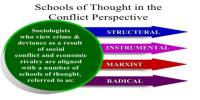Rural sociology is a branch of sociology that studies rural communities, their social structures, and the social processes that take place in these regions. It is a thriving academic field throughout much of the world, having begun in the United States in the 1910s with close ties to the national Department of Agriculture and land-grant university agricultural colleges. It investigates how rural and urban places differ in terms of culture, social organization, and economic activities.
While the issue of natural resource access transcends traditional rural spatial bounds, one focus of rural sociology is the sociology of food and agriculture, and much of the discipline is dedicated to the economics of agricultural production.
Other areas of research include rural migration and other demographic patterns, environmental sociology, amenity-led development, public-lands policies, so-called “boomtown” development, social disruption, the sociology of natural resources (including forests, mining, fishing, and other areas), rural cultures and identities, rural health-care, and educational policies.
Rural sociology encompasses a wide range of topics and research areas, including but not limited to:
- Rural Communities: The study of rural communities involves analyzing their size, demographics, social networks, and community institutions. Researchers examine the social interactions and relationships within these communities.
- Agriculture and Rural Economy: Agriculture is often a central feature of rural life, and rural sociology looks at how agriculture and other economic activities shape rural societies. This includes issues like land use, agricultural practices, and rural labor markets.
- Rural Development: Understanding how rural areas can develop and improve their living standards is a key concern of rural sociology. This includes studying rural policies, infrastructure, and access to essential services.
- Rural-Urban Interactions: Rural sociology explores the interactions and interdependencies between rural and urban areas. Urbanization, migration, and the flow of resources and information between rural and urban environments are essential topics in this field.
- Cultural Practices and Traditions: Rural societies often have distinct cultural practices, traditions, and norms. Researchers in this field explore how these elements shape the identity and social cohesion of rural communities.
- Environmental Sociology: Rural places are frequently linked to natural settings. Rural sociology studies how rural populations interact with and effect their natural surroundings, including agricultural, land management, and environmental conservation issues.
- Family and Social Relationships: The structure of families and social ties might change between rural and urban locations. Examining family farming dynamics, gender roles, and community-based support networks are all part of this.
To better understand the dynamics of rural living, rural sociology is a multidisciplinary field that draws on concepts and methods from sociology, anthropology, economics, geography, and other disciplines. It is critical in informing policies and efforts aiming at enhancing rural communities’ well-being and sustainability.
















